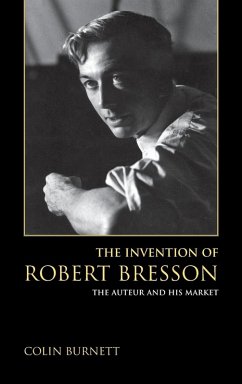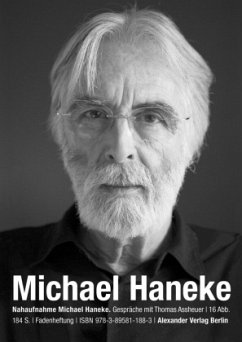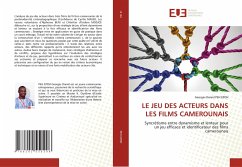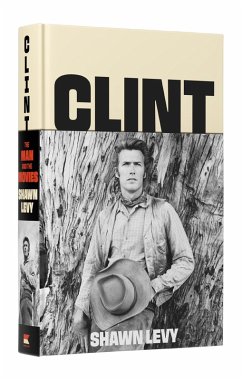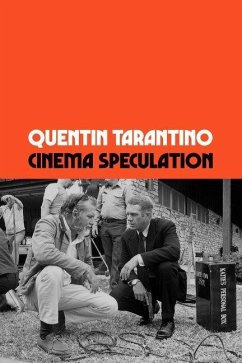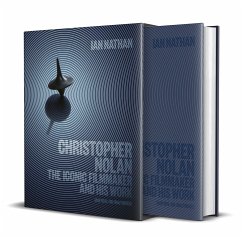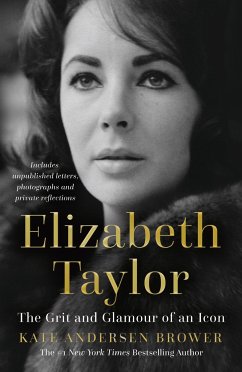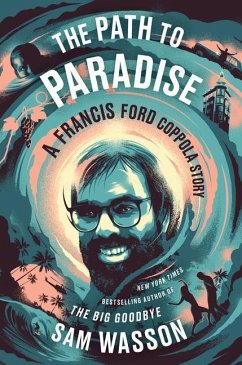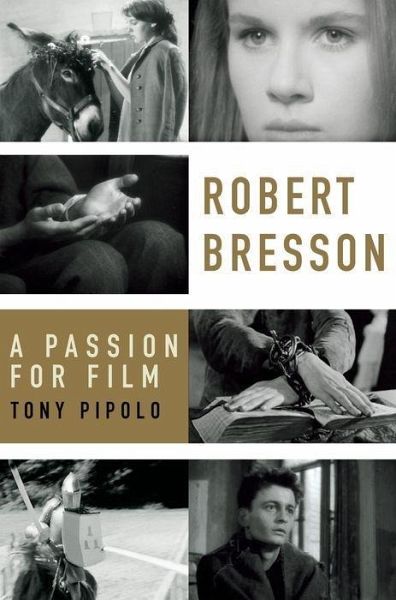
Robert Bresson
A Passion for Film
Versandkostenfrei!
Versandfertig in 1-2 Wochen
56,99 €
inkl. MwSt.
Weitere Ausgaben:

PAYBACK Punkte
28 °P sammeln!
Robert Bresson: A Passion for Film looks at the great filmmaker's body of work not only by coming to terms with its thematic preoccupations and the development of its unique authorial style, but also in terms of the ouevre's seminal place in the history of film. The filmic rhetoric that Bresson pursued was nothing less than an effort to create film narrative's exemplary form, throwing off the conventions of the theater and acting that still dominate
mainstream filmmaking. In this respect, Bresson's films are no less ground-breaking than those of D.W. Griffith and Sergei Eisenstein, whose formal innovations have been thoroughly explored. Wonderfully written and subtle in its exploration of literary models and source material, Pipolo's book is the first
comprehensive study to give equal attention to the films, their literary sources, and psycho-biographical aspects of the work. A thorough portrait, Bresson's sources, style, and biography are explored via a chronological investigation of his films, yielding a rich analysis worthy of this master filmmaker.
mainstream filmmaking. In this respect, Bresson's films are no less ground-breaking than those of D.W. Griffith and Sergei Eisenstein, whose formal innovations have been thoroughly explored. Wonderfully written and subtle in its exploration of literary models and source material, Pipolo's book is the first
comprehensive study to give equal attention to the films, their literary sources, and psycho-biographical aspects of the work. A thorough portrait, Bresson's sources, style, and biography are explored via a chronological investigation of his films, yielding a rich analysis worthy of this master filmmaker.
The films of the late French filmmaker Robert Bresson, once thought formidable both because of the somberness of their subject matter and the austerity of the filmmaker's style, have in the last decade found a new audience. In part, this is owing to the rarely acknowledged but profound influence his style has had on later filmmakers-from Chantal Akerman to Michael Haeneke. This book looks at Bresson's body of work not only by coming to terms with its thematic
preoccupations and the development of its unique authorial style, but also in terms of the ouvre's seminal place in the history of film. The filmic rhetoric that Bresson pursued was nothing less than an effort to create an exemplary form of film narrative, throwing off the conventions of the theater and
acting that still dominate mainstream filmmaking. In this respect, Bresson's films are no less ground-breaking than those of D.W. Griffith and Sergei Eisenstein.
In addition, while few who have written about Bresson would deny the highly personal and idiosyncratic nature of his work, its autobiographical dimension has never been fully explored. This constitutes a rich vein for investigation and the films-in both their subject matter and style-mirror and trace the aesthetic and psychological dispositions of the filmmaker. What one discovers in these explorations is a deeper relationship between the filmmaker and his literary models-especially the
novelists Georges Bernanos and Fyodor Dostoevsky. With both, he also shares convictions about the "fallen nature of humanity, an attitude of mourning for the loss of childhood innocence, a strong preoccupation with Christian theology, and the role evil and sexuality play in our lives. In this book Bresson's
sources, style, and biography are explored via a chronological investigation of his films, yielding a dense analysis worthy of this master filmmaker.
preoccupations and the development of its unique authorial style, but also in terms of the ouvre's seminal place in the history of film. The filmic rhetoric that Bresson pursued was nothing less than an effort to create an exemplary form of film narrative, throwing off the conventions of the theater and
acting that still dominate mainstream filmmaking. In this respect, Bresson's films are no less ground-breaking than those of D.W. Griffith and Sergei Eisenstein.
In addition, while few who have written about Bresson would deny the highly personal and idiosyncratic nature of his work, its autobiographical dimension has never been fully explored. This constitutes a rich vein for investigation and the films-in both their subject matter and style-mirror and trace the aesthetic and psychological dispositions of the filmmaker. What one discovers in these explorations is a deeper relationship between the filmmaker and his literary models-especially the
novelists Georges Bernanos and Fyodor Dostoevsky. With both, he also shares convictions about the "fallen nature of humanity, an attitude of mourning for the loss of childhood innocence, a strong preoccupation with Christian theology, and the role evil and sexuality play in our lives. In this book Bresson's
sources, style, and biography are explored via a chronological investigation of his films, yielding a dense analysis worthy of this master filmmaker.




